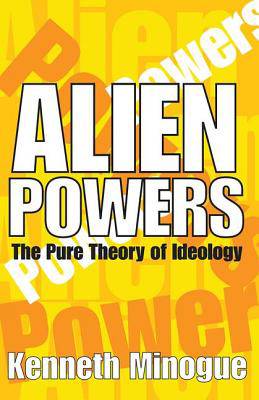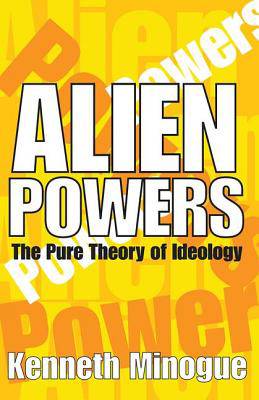
- Retrait gratuit dans votre magasin Club
- 7.000.000 titres dans notre catalogue
- Payer en toute sécurité
- Toujours un magasin près de chez vous
- Retrait gratuit dans votre magasin Club
- 7.000.0000 titres dans notre catalogue
- Payer en toute sécurité
- Toujours un magasin près de chez vous
Description
The term "ideology" can cover almost any set of ideas, but its power to bewitch political activists results from its strange logic: part philosophy, part science, part spiritual revelation, all tied together in leading to a remarkable paradox--that the modern Western world, beneath its liberal appearance, is actually the most systematically oppressive system of despotism the world has ever seen. Alien Powers: The Pure Theory of Ideology takes this complex intellectual construction apart, analyzing its logical, rhetorical, and psychological devices and thus opening it up to critical analysis.
Ideologists assert that our lives are governed by a hidden system. Minogue traces this notion to Karl Marx who taught intellectuals the philosophical, scientific, moral, and religious moves of the ideological game. The believer would find in these ideas an endless source of new liberating discoveries about the meaning of life, and also the grand satisfaction of struggling to overcome oppression. Minogue notes that while the patterns of ideological thought were consistent, there was little agreement on who the oppressor actually was. Marx said it was the bourgeoisie, but others found the oppressor to be males, governments, imperialists, the white race, or the worldwide Jewish conspiracy.
Ideological excitement created turmoil in the twentieth century, but the defeat of the more violent and vicious ideologies--Nazism after 1945 and Communism after 1989--left the passion for social perfection as vibrant as ever. Activist intellectuals still seek to "see through" the life we lead. The positive goals of utopia may for the moment have faded, but the ideological hatred of modernity has remained, and much of our intellectual life has degenerated into a muddled and dogmatic skepticism. For Minogue, the complex task of "demystifying" the "demystifiers" requires that we should discover how ideology works. It must join together each of its complex strands of thought in order to understand the remarkable power of the whole.
Spécifications
Parties prenantes
- Auteur(s) :
- Editeur:
Contenu
- Nombre de pages :
- 396
- Langue:
- Anglais
Caractéristiques
- EAN:
- 9780765803658
- Date de parution :
- 15-12-06
- Format:
- Livre relié
- Format numérique:
- Genaaid
- Dimensions :
- 161 mm x 234 mm
- Poids :
- 666 g

Les avis
Nous publions uniquement les avis qui respectent les conditions requises. Consultez nos conditions pour les avis.






